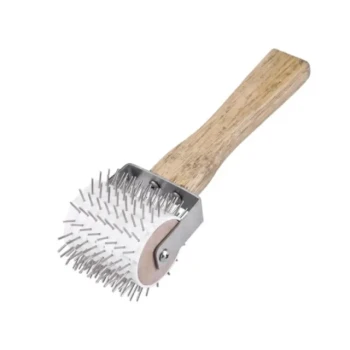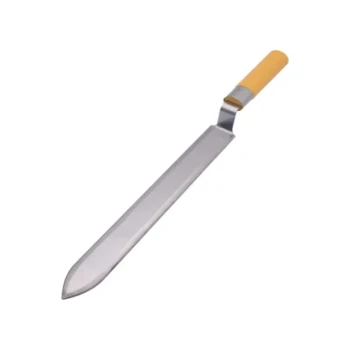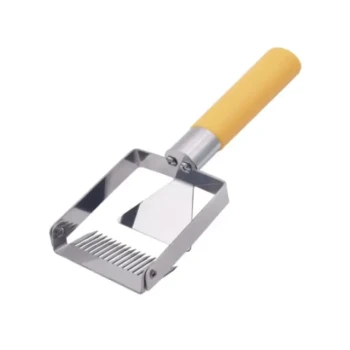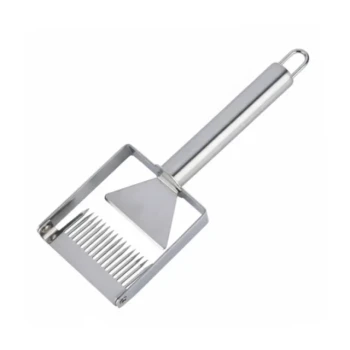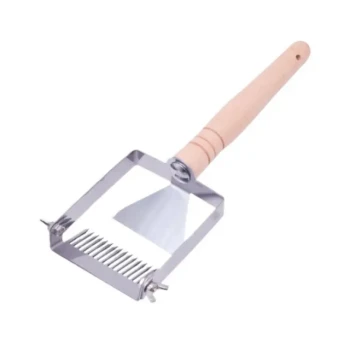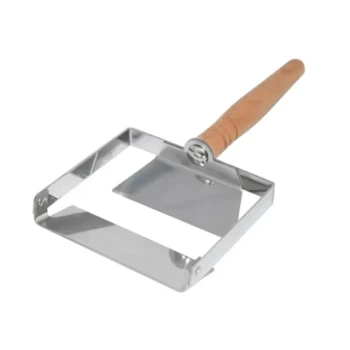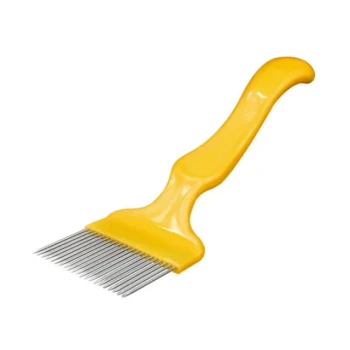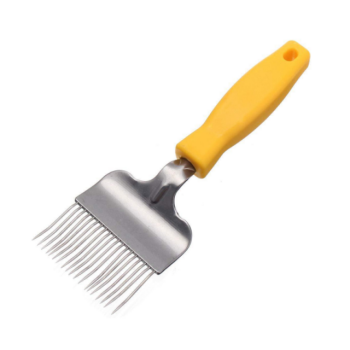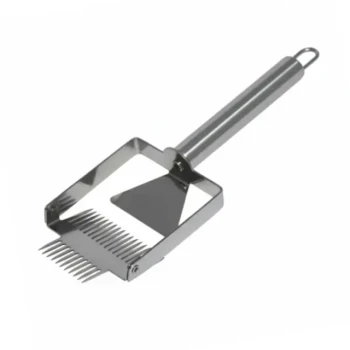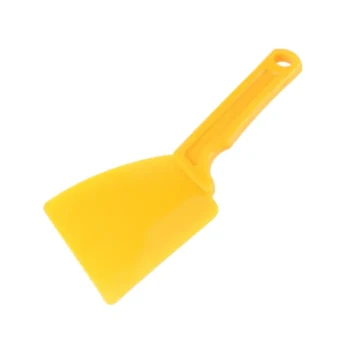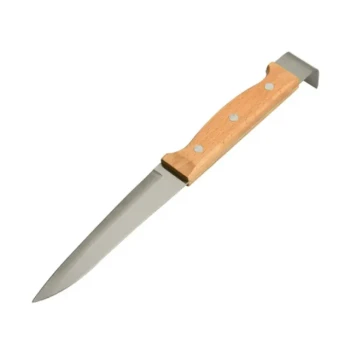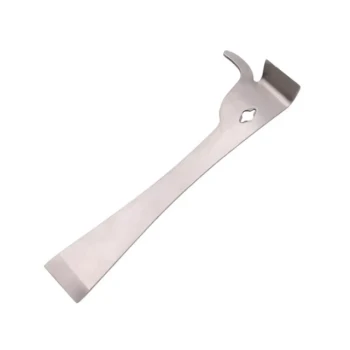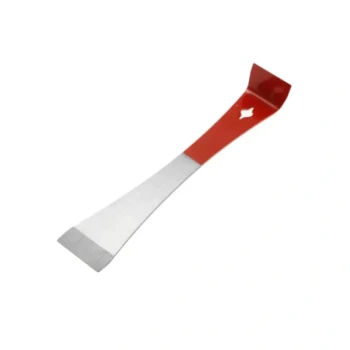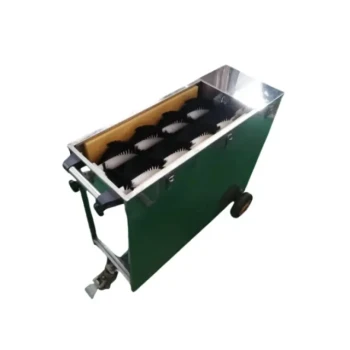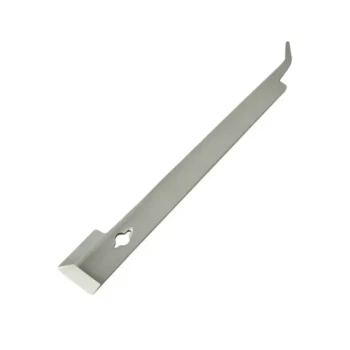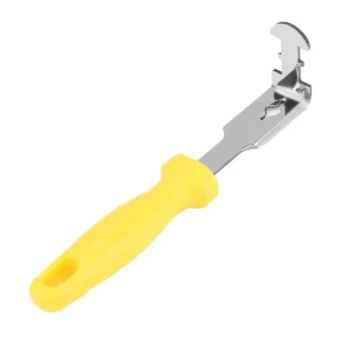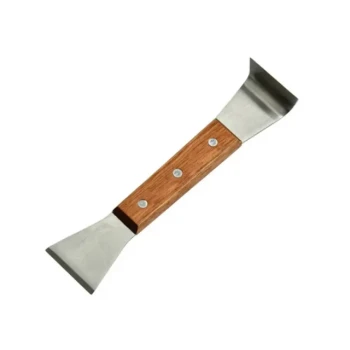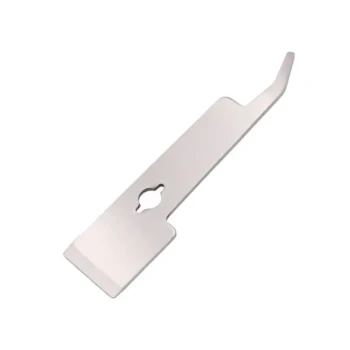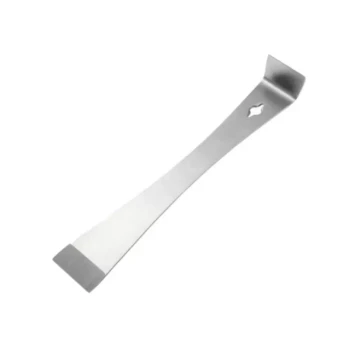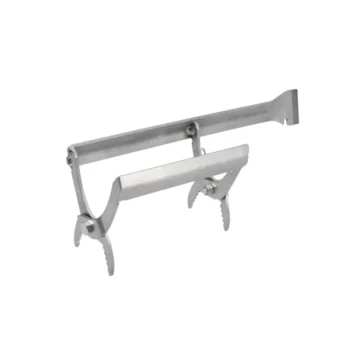In beekeeping, uncapping is the process of removing the thin wax layer that honeybees build to seal honey inside the cells of a honeycomb. This is the essential first step in the honey harvesting process, as it opens the cells and allows the honey to be extracted. Without uncapping, the honey would remain locked within the comb.
Uncapping is the critical bridge between the hive and the honey jar. It's not just about removing a wax seal; it's about preparing the honeycomb for extraction in a way that allows the bees to efficiently reuse their comb, saving them immense energy.
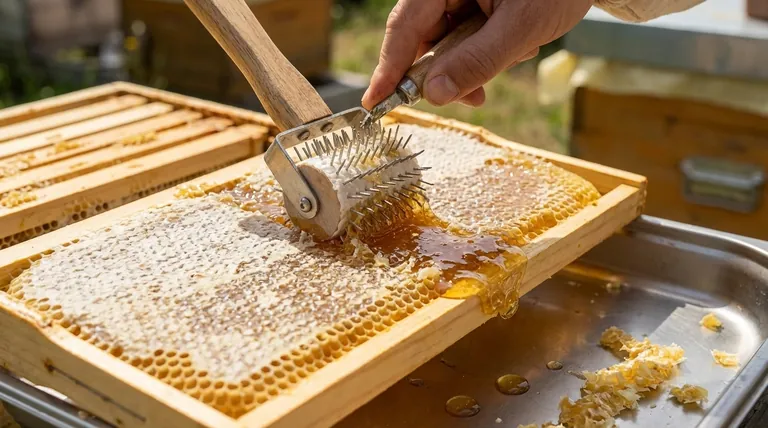
Why Bees Cap Honey (And Why We Must Uncap It)
To understand uncapping, we must first understand why bees "cap" their honey. This seemingly simple action is a vital part of the hive's biology and the beekeeper's harvesting process.
The Bee's Natural Pantry Seal
Honeybees cap a cell only when the honey inside has reached the correct moisture content (typically below 18.6%). The wax capping acts as a perfect, airtight lid.
This seal prevents the honey from absorbing humidity from the air, which would cause it to ferment and spoil. It is nature's way of preserving their food supply for the long term.
The Key to Extraction
When it's time to harvest, these protective wax cappings become a barrier. The most common method of harvesting, centrifugation, involves spinning the frames in a machine called an extractor.
If the cells remain capped, the honey is trapped by the wax. Uncapping removes this barrier, allowing the honey to flow freely out of the cells when spun.
Preserving the Comb for the Bees
A careful uncapping process allows the beekeeper to preserve the structural integrity of the honeycomb.
This is a massive benefit. Bees can immediately begin refilling the empty, intact comb. This saves them the enormous amount of energy and resources required to build new wax comb from scratch.
The Tools of the Trade: Choosing Your Method
Beekeepers use several specialized tools to uncap their frames. The choice often comes down to budget, the number of hives, and personal preference.
The Hot Knife: Speed and Efficiency
An electric uncapping knife, or "hot knife," has a built-in heating element. Some models even have an adjustable thermostat.
The heated blade melts through the wax cappings quickly and with minimal effort, making it a popular choice for beekeepers with multiple hives to process.
The Cold Knife: The Traditional Approach
A "cold" uncapping knife is a long, sharp, and often serrated blade with no heating element. It slices through the cappings rather than melting them.
This is a less expensive, traditional alternative. To make cutting easier, many beekeepers dip the cold knife in a pot of very hot water between passes.
Alternative Uncapping Tools
Beyond knives, other tools exist, such as spiked rollers that puncture the cappings or "pull" uncappers that slice the cappings as you pull the tool across the frame. These are generally suited for specific workflows or smaller-scale operations.
Understanding the Trade-offs
Each uncapping method comes with its own set of considerations. Understanding these trade-offs is key to choosing the right tool for your operation.
Heat vs. Precision
A hot knife is fast but can be less precise, sometimes melting more of the comb than intended if held in one place for too long.
A cold knife offers more precise control over the cut but requires more physical effort and is generally slower.
Cost and Complexity
Electric hot knives represent a higher initial investment and require a power source. Cold knives are simple, inexpensive, and require no electricity, making them a reliable and portable option.
The Value of Cappings
The removed wax cappings are not waste. They are a valuable byproduct, often collected, melted down, and filtered to create pure beeswax for candles, cosmetics, or furniture polish.
Making the Right Choice for Your Harvest
The goal of uncapping is to open the honey cells cleanly and efficiently. The best method depends entirely on your specific needs and scale.
- If your primary focus is speed and volume: An electric hot knife is the most efficient tool for processing a large number of frames.
- If your primary focus is low cost and simplicity: A traditional cold knife, paired with a pot of hot water, is a perfectly effective and budget-friendly solution.
- If your primary focus is preserving every bit of wax: A cold knife or a specialized slicer may provide a cleaner cut, making it easier to separate honey from the wax cappings.
Ultimately, uncapping is the satisfying moment when you first reveal the liquid gold the bees have worked so hard to create.
Summary Table:
| Method | Key Feature | Best For |
|---|---|---|
| Hot Knife | Heated blade melts wax | Speed and large-scale operations |
| Cold Knife | Sharp blade slices wax | Budget-conscious beekeepers |
| Alternative Tools | Rollers or pull-type uncappers | Specific, smaller-scale workflows |
Ready to optimize your honey harvest?
As a commercial beekeeper or distributor, your efficiency directly impacts your bottom line. HONESTBEE supplies professional-grade uncapping equipment and a full range of beekeeping supplies designed for the demands of commercial apiaries.
We help you:
- Increase harvesting speed with reliable, high-performance tools.
- Reduce operational costs through durable, long-lasting equipment.
- Maximize wax recovery with solutions that preserve this valuable byproduct.
Let's discuss your specific needs. Contact our wholesale team today to get the right tools for your operation.
Visual Guide

Related Products
- Professional Honey Uncapping Roller for Efficient Harvesting
- Professional Stainless Steel Double-Sided Honey Uncapping Knife
- Stainless Steel Pivoting Honey Uncapping Fork with Plastic Handle
- All-Stainless Steel Pivoting Honey Uncapping Fork for Beekeeping
- Adjustable Stainless Steel Honey Uncapping Fork with Scraper for Beekeeping
People Also Ask
- Why are specialized needle machines necessary for processing thixotropic honey? Unlock Heather Honey Extraction
- What is the purpose of honeycomb uncapping in honey processing? Unlock Efficient Honey Extraction
- What are the advantages of using a steam uncapper for high-volume honey production? Scale Your Harvest Efficiency
- What is the overall recommendation for beginner beekeepers regarding uncapping tools? Master Your First Honey Harvest
- What to do with cappings after extracting honey? Maximize Your Harvest's Value
- What methods can be used to remove the beeswax cappings from honey cells? Top 3 Uncapping Techniques for Beekeepers
- What are some tools that can be used to remove wax cappings from honeycomb? Choose the Right Tool for Your Harvest Scale
- What is the first step in the honey extraction process? Master the Critical Art of Uncapping
